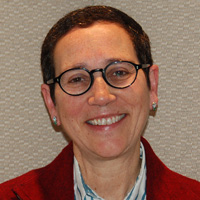The most common approach to a health care issue seems to be is to try to scare the living daylights out of us. You've heard them, those ads that tell you to 'ask your doctor', or that warn that your risk of getting heart disease is 20%, or your risk of getting cancer is one in two?
A lot of people respond to these numbers with fear which is why we need to change how we talk about the risk of disease.
I'm a breast cancer activist. My work involves getting ordinary people to care enough about breast cancer to work together to change what's going on so that the future looks different from - and better - than the present when it comes to breast cancer. In my field the risk number we hear is one in eight. As a result most women over-estimate their risk of breast cancer. Just ask them.
That 'one in eight' figure doesn't mean that one of every eight women now has breast cancer. And it doesn't mean that one out of eight women will die of breast cancer. It means that if every woman lived to age 85 one out of eight of them would have had breast cancer sometime in her life.
The same problem happens with every illness that we talk about in terms of risk. Whether it's diabetes or lung cancer, what we're doing when we talk in terms like one in three, or one in five, or one in eight is terrifying people.
